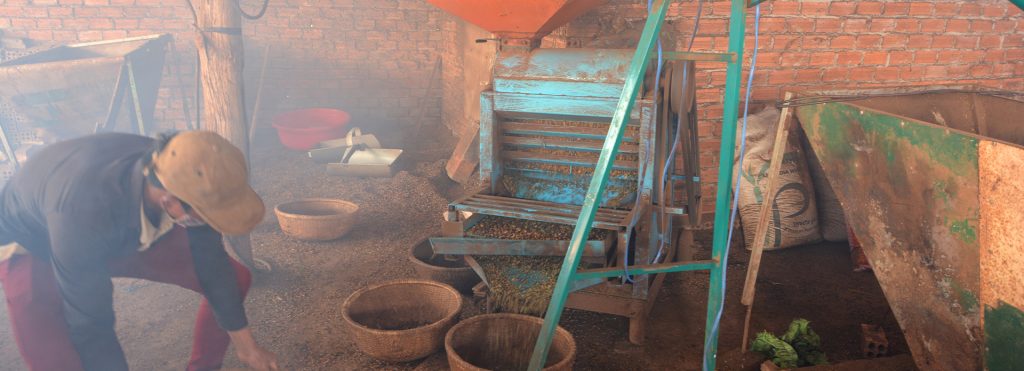Viet Nam
Improving safety and health at every step of the coffee supply chain in Viet Nam
Viet Nam is a lower middle-income country with a fast paced economic and social development and the world’s second largest producer of coffee. With a strong in-country presence of leading multi-national enterprises in the sector, the value of coffee exports amounts to ca. US $3 billion per year, accounting for over 10% of the country’s total agricultural exports. The sector employs over 600,000 workers and provides livelihoods for approximately 2.6 million people.



Coffee Supply Chain
Unsafe working conditions, characterized by various ergonomic, biological, chemical and physical hazards and risks, remain a problem for men and women working at different stages of the supply chain. Many workers are also exposed to psychological risks, notably high levels of stress, due to financial insecurity inherent in the sector. Such conditions are detrimental to both workers’ health and the productivity of businesses. High levels of informality among farm workers exacerbate the risk exposure and their capacity to cope with accidents injuries and diseases.
Expected Outcomes
The project in Viet Nam specifically seeks to reduce the exposure of women and men working in coffee cultivation and processing to occupational safety and health hazards and risks through: strengthened regional and national enabling environments for the promotion of safe and healthy working conditions in the coffee supply chain; improved legal and policy frameworks to promote and enforce OSH protection, prevention and compensation in the Viet Nam Coffee supply chain; and increased application of effective OSH prevention, protection and compensation mechanisms for women and men working in the coffee supply chain
Project implementation will emphasize stakeholder cooperation and collective action as key mechanisms to address OSH gaps in the coffee supply chain. While primarily focusing on the coffee supply chain, the intervention will also explore possibilities to replicate good OSH practices in other agriculture sub sectors.
640,000
coffee-farming
households benefiting
from project interventions
